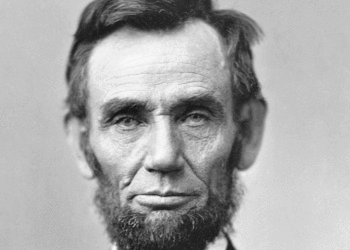Ads from the Republican Jewish Coalition and divisive rhetoric
from the McCain-Palin ticket endanger Israel
By Paul Maccabee and Paula Maccabee
Are we concerned about how a President Barack Obama might treat Israel? Of course. As longtime, passionate supporters of Israel, we are concerned about any U.S. presidential and vice-presidential nominees, even ones like Barack Obama and Joe Biden who came to AIPAC in March 2007 (where we and our 12-year-old son were delegates) to openly proclaim their support for Israel’s security and for sanctions to prevent Iran from acquiring nuclear weapons.
But we believe that the full-page ad placed by the Republican Jewish Coalition in the American Jewish World on Sept. 5, and the divisive politics of the John McCain-Sarah Palin ticket pose a far greater threat to the security of Israel. As emphasized by AIPAC (American Israel Public Affairs Committee) and The Israel Project, support for Israel must not become a partisan political matter.
Both Democrats and Republicans support Israel; and there are at least as many questions about how McCain and Palin would respond to Israel’s need for security, as there are about how the Democratic team would respond. More critically, the divisiveness, jingoism and shoot-from-the-hip style of the McCain-Palin ticket represents a world view and style virtually indistinguishable from that of George W. Bush.
This type of American leadership disregards Israeli intelligence in favor of America-knows-best arrogance, and has contributed to Israel’s isolation from the world community, even as other nations struggle to address similar issues pertaining to Islamic extremism, terrorist attacks on civilians, and the insecurity caused by dependence on Arab oil.
Contrary to what the Republican Jewish Coalition would have you believe, the issue has never been whether Republicans or Democrats are better for Israel. Could any of us say whether Republican Rudy Boschwitz or Democrat Tom Lantos was a stronger supporter of the Jewish State? The real issue is whether specific candidates will have the experience, judgment and insight to be effective advocates for Israel.
First, let us be clear. Barack Obama and Joe Biden are strong supporters of Israel. Obama recently told the National Jewish Democratic Council: “When I am president, the United States will stand shoulder to shoulder with Israel.… The United States government and an Obama presidency cannot ask Israel to take risks with respect to its security.”
This may not be a difficult thing to say to a friendly, mainly Jewish audience. But Obama’s speech accepting the Democratic nomination — with 40 million people watching raptly on primetime TV — specifically underscored the need to protect Israel and deter Iran: “You don’t protect Israel and deter Iran just by talking tough in Washington.”
As a state senator in Illinois, Obama co-sponsored a bill that enabled Illinois to invest in Israel bonds. Obama traveled to Israel in 2006 to learn firsthand about the security challenges Israel faces and spoke to Palestinian students in Ramallah, telling them that nothing can break the bonds between the United States and Israel. In the U. S. Senate, Obama has consistently supported foreign aid to Israel and opposed terrorism against the Jewish state, including co-sponsorship of the U.S.-Israel Energy Cooperation Act and the Palestinian Anti-Terrorism Act of 2006.
As Shmuel Rosner, the chief U.S. correspondent for Haaretz, wrote recently: “Obama supports Israel. Period.”
The Republican Jewish Coalition ad warns Minnesota Jews about “anti-Israel advisors” for the Democratic candidate, such as Zbigniew Brzezinski. But John McCain, in his own words, raised even more serious questions about his choice of advisors. In a May 2006 interview with reporter Amir Oren of Haaretz, McCain promised Oren that he’d “send the smartest guy I know in the Middle East such as Jim Baker, though I know that you in Israel don’t like Baker.” It was former secretary of state James Baker who said, “F–k the Jews, they don’t vote for us anyway.”
Yes, we are uncomfortable with Rev. Jeremiah Wright’s extremism on the left, which Obama finally repudiated, but no more than we’re discomfited by the right-wing extremism of Sarah Palin’s Bible Church in Wasilla, Alaska. On Aug. 17, when Palin was attending church, Jews for Jesus director David Brickner preached from the pulpit that Islamic terrorism directed against the Jews in Israel was God’s “judgment of unbelief” against the Jews for not embracing Jesus. Why is there no call for Palin to repudiate the bigotry of her church?
We know that Obama’s vice-presidential pick, Joe Biden, is a self-described “Zionist” whose pro-Israel record was termed “sterling” by JTA, the New York-based Jewish news service. Biden has voted dozens of times in favor of U.S. financial and military assistance to Israel. But, American Jews have no idea how Sarah Palin — who until recently never had a passport, and has never visited Israel — would respond to threats against the Jewish State. Palin, in fact, lavished praised this year on Republican Rep. Ron Paul, an extremist who votes against all foreign aid to Israel, which raises questions about her commitment to Israel.
But, our conviction that Barack Obama and Joe Biden would be better for Israel’s security than the McCain-Palin ticket goes deeper than a concern about advisors and affiliations. At a very fundamental level, we believe that John McCain’s leadership style, despite his statements of support for Israel, could create more of the same risks to Israel’s security that we’ve seen these past eight years with George W. Bush.
The Bush administration’s $1 trillion fiasco with the Iraq War, which Obama opposed and McCain supported, has contributed to the ascendance of Iran as a regional power and has helped recruit a larger and better-equipped generation of jihadists. Situations where the Bush Administration insisted it knew better than Israeli intelligence, leading to a demand from the White House that the West Bank and Gaza hold elections in Jan. 2006, have demonstrated that even a “friend” of Israel with poor judgment, can do real harm to Israel’s security. These premature elections, which Obama opposed, resulted in the landslide victory of Hamas, the terrorist group bent on Israel’s destruction.
We believe that for Israel and America to face the challenges of Islamic extremism and the economic power of Arab oil, we need a less impulsive, more reasoned and more bi-partisan type of leadership than that represented by George W. Bush and John McCain.
We come back to the threat of partisanship reflected in the Republican Jewish Coalition’s anti-Obama ad in the American Jewish World last week. What Israel can least afford now is an American public and world opinion that perceives support for Israel as the pet issue only of the bellicose right wing of American politics. For this reason, the fact that over 200,000 people came to cheer Barack Obama in Germany matters to American Jewry. It matters, as The Israel Project reports, that Obama’s visit to Sderot earlier this year to call attention to the Kassam rocket attacks from Gaza garnered 20,000 favorable mentions in the European press.
Although both McCain and Obama have said the right things about Israel, we’re convinced that Barack Obama’s ability to appeal across racial, gender and party lines — and across the borders that divide nations — holds the greatest potential to rebuild broader support for Israel based upon common goals of democracy, renewable energy, and respect for human rights. For its long-term security, Israel needs the reasoned and inclusive diplomacy of a new American president, Barack Obama.
***
Paula Maccabee, the daughter of an Israeli sabra, is a public interest lawyer, with a practice focused on environmental issues. Paul Maccabee is president of the Minneapolis-based public relations firm, Maccabee Group Inc. They live in St. Paul.



















